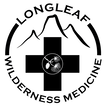Injury while kayaking - p.1
Scene: You, along with several friends, are on a two week sea kayaking expedition in a remote chain of islands in Lake Superior. The nearest access to a road is a 50 mile paddle from your current location.
Weather: 60ºF daytime, 40ºF at night. The marine forecast is worsening over the next three days, calling for higher wind and waves.
Patient Presentation: On day six of the expedition, your 30 year old male paddling partner complains of a finger that is red and painful.
Initial Assessment: Airway, breathing and circulation are adequate. Patient did not have a loss of consciousness and has no back or neck trauma.
Focused Assessment:
Vitals
You did not take vital signs during the assessment.
SAMPLE
The patient reports that the pain started a few days ago and has gradually gotten worse. He rates the pain as a 5 out
of 10, and describes it as “throbbing”. The patient does not recall a previous injury to the finger, but states that he
had a similar problem with another finger a few weeks previous that “cleared up on its own”.
Physical Exam
The physical exam reveals that the patient’s left index finger is swollen, red and tender below the first knuckle. The
border between his fingernail and cuticle is raised and a small amount of white colored pus is visible.
What’s next?
Provider questions:
Weather: 60ºF daytime, 40ºF at night. The marine forecast is worsening over the next three days, calling for higher wind and waves.
Patient Presentation: On day six of the expedition, your 30 year old male paddling partner complains of a finger that is red and painful.
Initial Assessment: Airway, breathing and circulation are adequate. Patient did not have a loss of consciousness and has no back or neck trauma.
Focused Assessment:
Vitals
You did not take vital signs during the assessment.
SAMPLE
The patient reports that the pain started a few days ago and has gradually gotten worse. He rates the pain as a 5 out
of 10, and describes it as “throbbing”. The patient does not recall a previous injury to the finger, but states that he
had a similar problem with another finger a few weeks previous that “cleared up on its own”.
Physical Exam
The physical exam reveals that the patient’s left index finger is swollen, red and tender below the first knuckle. The
border between his fingernail and cuticle is raised and a small amount of white colored pus is visible.
What’s next?
Provider questions:
- What is your assessment and treatment plan for this patient’s finger?
- What problems do you anticipate if this condition does not resolve?
- What factors may have contributed to the patient’s current condition?
- Should the patient be evacuated?

